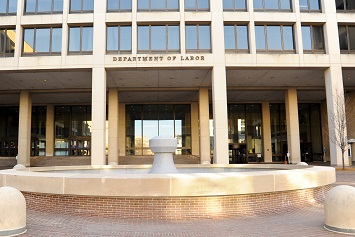With the confirmation of Marty Walsh as the new secretary of the U.S. Department of Labor (DOL), employers shouldn’t be surprised to see a more proemployee climate on the federal level.
Walsh was confirmed by the U.S. Senate on March 22 in a 68-29 vote. A longtime union member and leader, he was serving a second term as Boston mayor when President Joe Biden tabbed him for DOL secretary.
“We expect Walsh to be prolabor of course, but he also has a reputation at the state and local level of working well with business and employer groups,” Meaghan E. Murphy, an attorney with Skoler, Abbott & Presser, P.C. in Springfield, Massachusetts, says.
H. Mark Adams, an attorney with Jones Walker LLP in New Orleans, Louisiana, also expects a labor-friendly tone from the new administration since Biden has long supported union efforts.
“Following the lead of his boss, I expect Walsh to take the department in a much more union-friendly and proemployee direction,” Adams says. “But I also expect him to restore some balance to the department and do not expect to see a reprise of the Tom Perez [labor secretary under the Obama administration] era, at least not in the short term.”
What to Expect
“If employers want to know what to expect, they can look at the PRO Act,” Jack Merinar, an attorney with Steptoe & Johnson PLLC in Bridgeport, West Virginia, says, referring to the Protecting the Right to Organize (PRO) Act, which passed in the U.S. House of Representatives March 9 but is not expected to attract enough support in the Senate to overcome a filibuster.
If the PRO Act doesn’t become law, Merinar says he expects the National Labor Relations Board (NLRB) to attempt to use rulemaking “to achieve the same results to the greatest extent feasible.”
“So, among other things, I anticipate that the NLRB will bring back the ‘speedy election’ rules, the concept of ‘microunits,’ and the ‘persuader rule.’ In plain terms, these three steps are all aimed at making it easier for unions to organize new bargaining units,” Merinar says.
Other Priorities
In addition to traditional labor issues, attorneys who advise employers on labor matters expect COVID-19 safety in the workplace, worker classification, and the minimum wage to be DOL priorities under Walsh.
COVID-19. James P. Reidy, an attorney with Sheehan Phinney Bass & Green PA in Manchester, New Hampshire, notes the DOL’s Occupational Safety and Health Administration (OSHA) already has issued new guidance on employees returning to work and safety measures employers should adopt or update. On March 12, OSHA adopted a national emphasis program (NEP) in response to a directive from President Biden.
The NEP has dedicated more agency resources toward COVID-19-related inspections over the next several months. “Secretary Walsh will likely make certain that those inspections are a priority,” Reidy says.
Worker classification. Reidy says the DOL has already increased its scrutiny regarding employer classification of independent contractors. “Because independent contractors don’t have the same wage or benefit protections as employees, we fully expect [the] DOL will make misclassification and compliance with related wage and hour laws a priority,” he says.
Adams says he expects the indefinite withdrawal of the previous administration’s independent contractor rule to become permanent and that it will be “more difficult for borderline independent contractor classifications to hold up.”
Murphy agrees Walsh’s leadership will result in more workers being considered employees rather than independent contractors. She says she expects the DOL to return to the Obama-era independent contractor rule.
Minimum wage. Adams says he expects Walsh to “throw the weight of his department behind an increase to $15/hour by 2025, but ultimately, any increase and how it’s phased in will be decided by the U.S. Senate.”
Merinar says he expects the DOL under Walsh to support the effort Biden initiated with a January executive order aimed at moving the federal workforce and employees of federal contractors toward a $15 minimum wage.
“This of course is intended to set a course toward legislative action to move the entire country to a $15 minimum wage,” Merinar says. “Walsh will do all that is within his power to promote that agenda.”
| Tammy Binford writes and edits news alerts and newsletter articles on labor and employment law topics for BLR web and print publications. |

